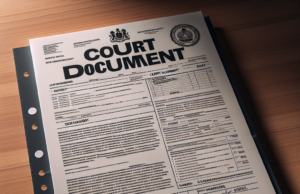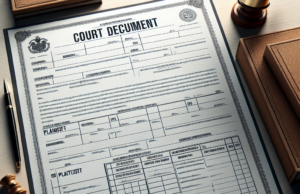Visitation Contempt Explained

Visitation contempt occurs when a parent fails to adhere to a court-ordered visitation agreement and can result in legal consequences. In this article, we will explore the concept of visitation contempt, the reasons why it occurs, and the potential consequences for those found to be in contempt.
What is Visitation Contempt?
Visitation contempt occurs when a parent fails to adhere to a court-ordered visitation agreement. This can include denying the non-custodial parent their court-ordered visitation time or failing to return the child at the designated time after visitation.
Reasons for Visitation Contempt
Visitation contempt may occur due to several reasons, such as:
1. Inflicting emotional pain: A parent may withhold visitation as a way to inflict emotional pain on the other parent, especially if the relationship between the parents is contentious.
2. Fear for the child’s safety: If a parent is concerned about the child’s safety, they may refuse to allow the other parent visitation.
3. Scheduling conflicts: In some cases, parents may have conflicting schedules that make it difficult to adhere to the visitation schedule.
Consequences of Visitation Contempt
Parents who are found to be in visitation contempt may face legal consequences. Some of the most common consequences include:
1. Fines: Courts may impose fines on parents who are found to be in contempt. These fines can range from a few hundred dollars to several thousand dollars.
2. Jail time: In serious cases of visitation contempt, a parent may face jail time. This is more likely to occur if the contempt is repeated or if it is an extreme case of withholding visitation.
3. Change in custody: A court may modify custody arrangements if it finds that one parent is consistently interfering with visitation rights.
4. Community service: In some cases, a court may order a parent who is in contempt to perform community service as a way to make amends for their actions.
Conclusion
Visitation contempt can cause significant emotional and legal consequences for both parents and children. It is essential for parents to adhere to court-ordered visitation agreements to ensure that their child has a stable and loving relationship with both parents. If visitation issues cannot be resolved, it is best to consult with a family law attorney who can provide guidance and legal representation. Ultimately, the well-being of the child should be the top priority.
There are many issues to handle when a couple decides to divorce.
Visitation, the division of assets, and custody are a few of them.
A divorce with children involved is particularly upsetting.
However, a bad situation can turn worse quickly, if the non-custodial parent chooses not to take advantage of their scheduled visitations.
While it’s true that a non-custodial parent does not legally have to take advantage of their court-ordered visitations, there are some legal actions that one can take to try to get their ex-spouse to follow the rules set up in the decree of divorce.
Visitations are usually considered to be a right, not a privilege, but this rule does not always hold true. The petition that established visitations is a legal court order.
If the non-custodial parent violates the court order, they are in contempt of court. One can request that the court hold the non-custodial parent in contempt of court if they do not follow their legal visitations schedule.
The first step that one should take, is trying to handle the problem on their own without involving the courts. It may be beneficial for one to talk with their ex-spouse about the divorce.
Visitation with a child should not be dependent on the parents’ relationship, and a mature conversation may solve the problem. If it does not, then it may be time to involve the courts.
Hiring an attorney who specializes in custody and visitations is a smart idea. If one cannot be afforded, then doing research on the subject is very important.
If involving the court is necessary, then one should be aware that changing visitations involves fees that must be paid. One fee is called a Marshall’s fee and it is used for filing a contempt order.
The fee generally ranges from $40 to $75. This fee can be waived if one can show proof of financial hardship. Two documents must be filled out.
They are called a Motion For Contempt and a Letter to the Marshal. The Motion For Contempt document legally notifies one’s ex-spouse that they are filing an order for contempt since the ex-spouse has not honored the court-ordered visitations agreement.
Filing the documents with the county clerk allows one to receive their court date. The Court Marshall’s letter is then used officially to serve the non-custodial parent with the Motion for Contempt since they have a right to defend themselves.
The court case to file an order of visitation contempt is similar to one regarding divorce. Visitation with both parents are considered to be important so the court takes into account that the non-custodial parent has not taken advantage of their visitations.
Having proof of this is very beneficial. Both parents will be called into the courtroom on the day of the visitations contempt hearing. They will each give their side of the story.
The judge will review any applicable evidence relating to the case. Presenting the previous visitations agreement and any proof that it was violated will help.
The judge will rule on the case. Usually, he or she will require a few days to go over the evidence and consider both sides of the story.
If the judge decided that the parent who served is in contempt of the visitations agreement, there are a couple of options.
He can either limit visitations, change the visitations schedule, try to enforce visitations as a way of giving the non-custodial parent another chance, or in rare cases deny visitations completely.
The spouse in contempt may also have to attend parenting classes, pay the custodial spouse’s attorney fees or even go to jail. The spouse who is in contempt has the right to appeal. The outcome of the case depends on the specific circumstances in the case.















